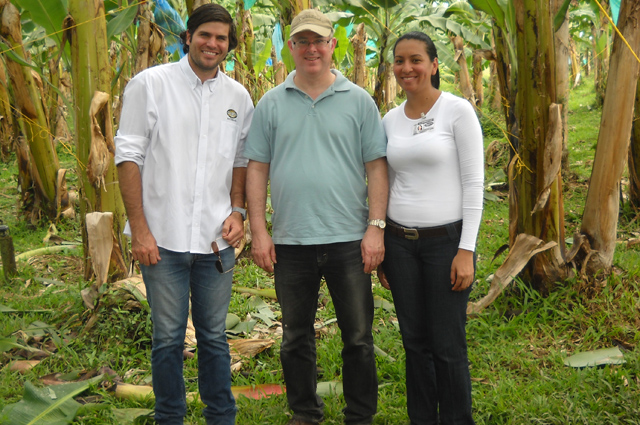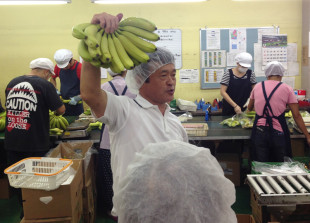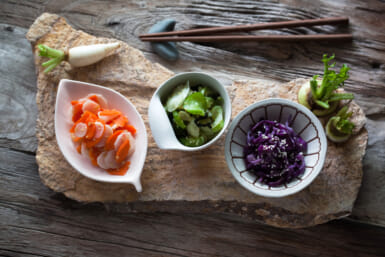Digging into the science and the philosophy of organic agriculture
By Alec Jordan
According to a study by MarketsandMarkets, the global market for certified organic food and beverages is forecast to reach $104.5 billion by the year 2015. With this much business at stake, it’s hard to imagine that any major food producer has not already begun to develop organic product lines.
But as companies involved in organic production quickly find out, it is much more work than might be expected. Organic farming can be far more labor intensive and initial costs might seem prohibitively high when compared to conventional farming methods. In the long run, the companies that have the most success in organics are those that operate not just from a perspective of profit and loss, but from an awareness of what organic production means to the environment at large, and for the communities that do the labor.
Daabon Organic Japan, a branch of the Colombia-based Daabon Organic, is one firm that has taken the organic perspective to heart and to head. As Donald Nordeng, CEO of Daabon Organic Japan, explained, all of the company’s products—bananas, coffee, and shortening made from palm oil are its main products in Japan—are organic, but the company’s commitment to responsible agricultural methods goes beyond just following the rules.
Nordeng himself has decades of experience with these standards; as a pioneer in the field of organic certification in Japan, he also has an intimate understanding of the day-to-day work that farm labor involves, having grown up in a farming family from rural Wisconsin in the US. As he explains, Daabon’s decision to devote itself to organic production began more than 20 years ago, following the EU’s landmark regulations on organic production.
One of the reasons that Daabon was able to establish itself as an early leader in organic production is that the company works directly with collectives of farmers who grow the coffee, bananas, and palm nuts that are processed and sold around the world. As Nordeng puts it, “our business is from field to market. And quality is made in the field, it’s not made in the factory. So when you come and talk to us, you’re talking to the farmers, because we are directly linked to them.”
The company has established a number of arrangements with their producers, in each case bolstering the communities where they do business. The Japan office launched a fair trade program with the company’s banana producers that sends back $45,000 each year to the workers’ co-op, which they use for development projects of their own choosing. Daabon backs groups of small coffee growers, allowing them to receive their organic certification all together, at a fraction of the price that an individual certification would cost. And in the case of their palm production, the company has set up 15-year contracts with hundreds of farmer families, covering their organic certification and a commitment to buy all of their production.
Daabon extends this same groundbreaking innovation to its production methods: in addition to maintaining the highest standards for organic agriculture, the company is also striving to reduce the environmental impact of their growing operations. Taking palm production as an example, Nordeng explains how Daabon has achieved a “carbon negative” status. This process begins with using leaves and other waste from the palm harvesting for compost—some of which is then used for growing and some of which is burnt for steam energy. This energy is then put to use for heating at production facilities. 100% of the electricity at the palm mill is generated from methane collected from a digester and more than 800kw that isn’t needed is sold back to the electrical grid. This offsets the power used at the palm oil refinery.
Customers of Daabon’s palm oil shortening, coffee, and bananas, which can be found at high-end grocery stores around Tokyo and on Amazon, may not be aware of the labor and dedication that goes into the company’s responsible production. However, by setting standards beyond those simply required for organic certification, Daabon is helping to set a direction for the industry itself, pushing it towards methods that are both ethically and ecologically conscious.
To visit Daabon’s online marketplace on Amazon, visit http://goo.gl/LQrSwC










